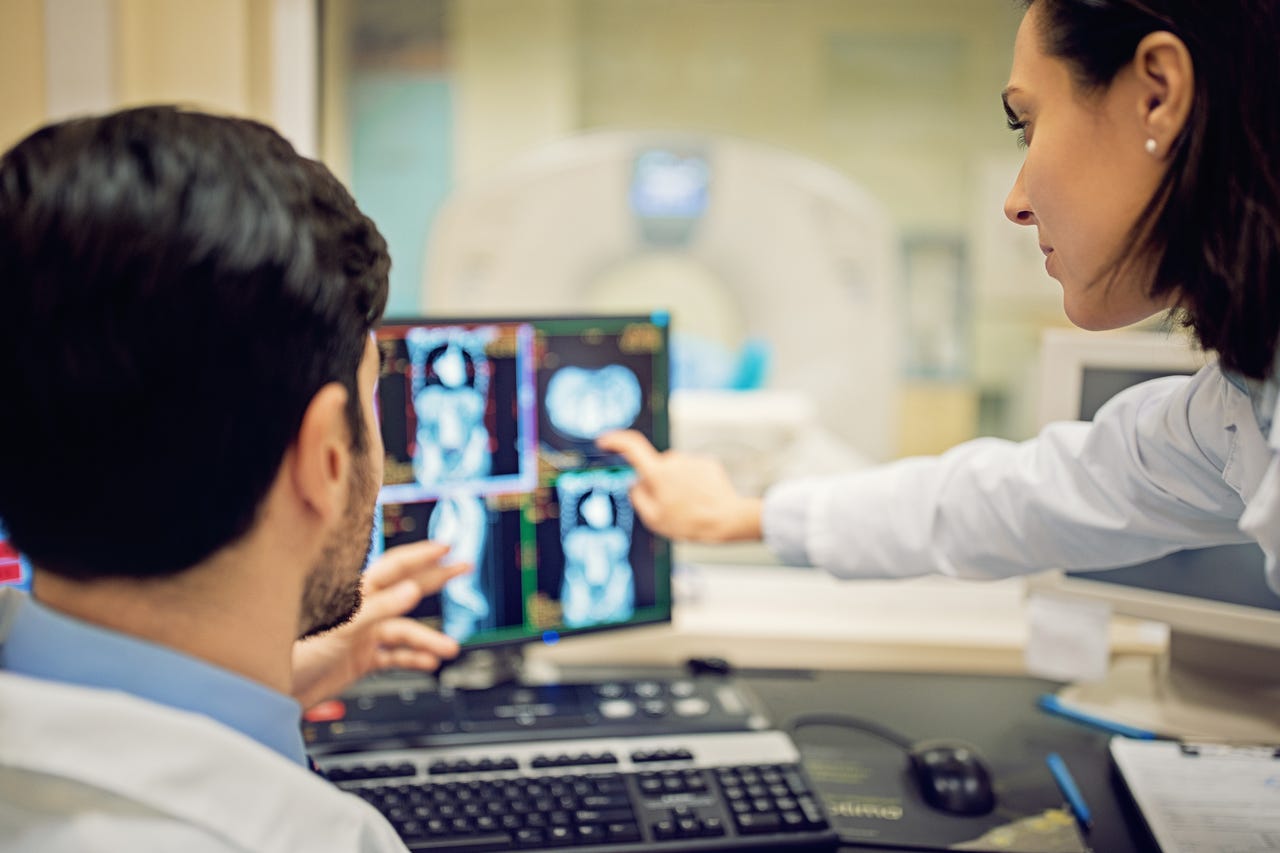
































Bayer on Tuesday announced that the healthcare company has signed an agreement to use Google Cloud, Vertex AI, BigQuery, Healthcare API, Chronicle, and other Google tools to develop an artificial intelligence platform for radiologists. The platform would be able to flag potential problems in images, as well as handle mundane tasks, hopefully making radiologists more efficient throughout the day.
"Through the collaboration with Google Cloud, our joint efforts will help organizations in the healthcare and life science industry transform the growing amounts of data into valuable and impactful insights, saving radiologists time and helping them optimize their important work for the benefit of patients," Bayer radiology president Nelson Ambrogio said in a statement.
Also: Should AI come to your doctor's office? OpenAI's co-founder thinks so
According to Bayer, medical imaging data makes up 90% of all healthcare data and radiologists need to comb through billions of images every year. The healthcare company expects those figures to keep growing as imaging becomes even more important.
This applies additional pressure on radiologists, who need to view all the images sent their way, compare them to prior images, ensure they're correctly determining what they're seeing, and provide a report to doctors. They also need to find time to perform their job's typical day-to-day tasks.
Bayer and Google Cloud's partnership aims to address this bottleneck by having AI handle many of the tasks radiologists say are time-consuming, the companies said. AI could also expedite the process of finding old slides and comparing them to new images, making for faster diagnoses. Additionally, the upcoming platform could make scientific papers and other research readily available to radiologists to increase the likelihood of accurate outcomes.
The companies were quick to note that the AI platform won't actually diagnose anything and will instead leave it to the radiologists to do that. While the platform will analyze the images, both Google and Bayer made clear that patient privacy is of utmost concern.
Also: 3 ways AI is revolutionizing how health organizations serve patients. Can LLMs like ChatGPT help?
"In healthcare settings, access and use of patient data is protected through the implementation of Google Cloud's infrastructure and data storage that support Health Insurance Portability and Accountability Act (HIPAA) and General Data Protection Regulation (GDPR) compliance, along with each customer's security and privacy controls," the companies said in a statement.
Looking ahead, Bayer and Google hope to have the AI platform up and running and in testing with healthcare organizations sometime in 2024. The companies haven't announced pricing or when the platform would be broadly available to customers.
 Tags quentes :
Inovação
Tags quentes :
Inovação